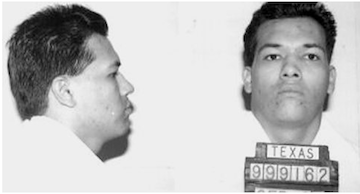 The Lookout
The LookoutObama asks for stay of execution in Texas

President Obama is asking the Supreme Court to stay tomorrow's planned execution of a Mexican citizen in Texas, arguing it could do "irreparable harm" to U.S. interests abroad.
In 1994, Humberto Leal Garcia Jr. was convicted of rape and murder and sentenced to death. Few are contesting his guilt, but an omission in the handling of his case may make things tough for American citizens arrested abroad: Leal wasn't told that he could contact the Mexican Consulate.
The Vienna Convention on Consular Relations, a treaty that includes 170 countries, says a foreigner who is arrested must be allowed access to her home country's consulate. The International Court of Justice ruled in 2004 that U.S. states' sentencing of 54 Mexican citizens to death without allowing them to contact the Mexican Consulate was a violation of the treaty. Then-president George W. Bush ordered Texas to review its policies, but the U.S. Supreme Court ruled in 2008 that neither Texas nor any U.S. state could be held to an international treaty unless Congress passed a law binding them to it.
Now, President Obama is asking the Supreme Court to stay the execution until Congress passes such legislation, which was recently introduced in the Senate. The administration says the execution would do "irreparable harm" to U.S. interests abroad.
Texas Gov. Rick Perry has rejected requests from the United Nations high commissioner for human rights, diplomats, judges, former President George W. Bush, retired military officials and now, the Obama administration, to stay the execution. The Texas Board of Pardons and Paroles rejected the request for a stay yesterday, though Perry could still grant a 30-day delay. After the Supreme Court ruled in its favor, the state put to death another Mexican national who had not been informed of his right to access his consulate three years ago. The state argues that Leal was not in custody when he incriminated himself, so the Vienna Convention obligations were not relevant.
But observers worry that foreign countries will be less willing to grant the thousands of U.S. citizens who are arrested abroad each year consular access if Leal is put to death.
"As retired military leaders, we understand that the preservation of consular access protections is especially important for US military personnel, who when serving our country overseas are at greater risk of being arrested by a foreign government," wrote Rear Admiral Don Guter, USN, Rear Admiral John D. Hutson, USN, and Brigadier General James P. Cullen, USA in a letter to Perry.
Journalist Euna Lee, who was detained in North Korea in 2009, wrote in The Washington Post that even that rogue nation granted her access to a Swedish diplomat who was representing U.S. consular interests after she was arrested. "We ask the world to treat our citizens with respect when they are detained in other countries, including honoring their right to consular access. It is a two-way street," she wrote. The Atlantic's Nicole Allen points out that even Iran gave brief consular access to the American hikers still in custody in that country on suspicion of spy activity.

